2025
Dr. Jessica Lundquist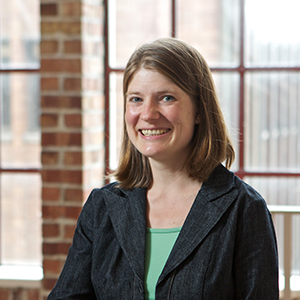
UW Department of Civil & Environmental Engineering
Patterns in the Peak: Understanding Mountain Hydrology
April 3, 2025
Mountains supply essential water for agriculture and cities, but figuring out exactly how much water is stored in mountain snow can be difficult due to the rugged terrain and unpredictable weather. Despite this, forecasts for how much water will flow from these snow-covered mountains in spring and summer have been reliable for nearly a century. This is because snow accumulation and melt follow consistent patterns year after year, shaped by the landscape. In this lecture, Dr. Jessica Lundquist will discuss how understanding these patterns can help us better predict snowmelt and streamflow. She will also highlight ongoing research efforts to address the challenges of collecting reliable data in remote mountain
environments.
2023
Dr. Julian Marshall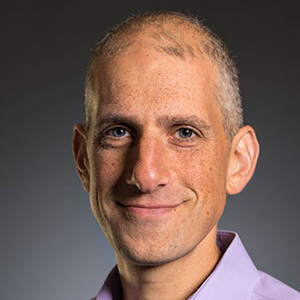
UW Department of Civil & Environmental Engineering
Anti-racist air-quality modeling?
November 16, 2023
Ambient air quality in the US has improved over time, thanks to steps such as the 1970 Clean Air Act. However, in part because of where pollution sources are located, people of color in the US are still, on average, more exposed to air pollution than are white Americans. Today, society’s goals for air quality include not only improving conditions overall, but also addressing systemic disparities. Models and measurements are needed to focus attention on how to achieve that goal; research is needed to help propose and test possible solutions. This talk will discuss existing exposure-disparities and how researchers and practitioners can use data and models to better understand how to eliminate these disparities.
2022
Professor Emeritus Steve Kramer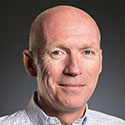
UW Department of Civil & Environmental Engineering
Big, small, fast, slow: Geohazards I have known
May 20, 2022
Our landscape is always changing — on different spatial and temporal scales — and many of those changes can have profound effects on individuals and communities. Earthquakes and landslides are some of the most widely known and publicized geohazards, but other hazards related to geologic materials and processes can also lead to severe damage and loss. Unlike buildings and bridges, the sources of geohazards are generally not visible until their effects reach the ground surface; as a result, society is surprised over and over by their occurrence. Over the course of the past 44 years, the speaker has been involved with the investigation of a number of geotechnical failures - from landslides that traveled 100 feet to one that traveled 1,000 miles, and from residential homes that moved an inch to a 650-ft high-rise that settled and tilted sufficiently to rate a story on 60 Minutes. This presentation will examine a variety of geohazards with examples from the speaker's career in geotechnical engineering research and practice and show how geotechnical engineers are dealing with them.
2020
Professor Dorothy Reed![]()
UW Department of Civil & Environmental Engineering
Reducing risk: Enhancing energy infrastructure resiliency
February 27, 2020
Civil infrastructure systems play an important role in community resilience. Often referred to as lifelines, these systems are comprised of about a dozen interdependent networks including electric power delivery, telecommunications, transportation, utilities and building support services. Modern society depends on these lifelines in order to function properly. In this talk, professor Dorothy Reed presents an overview of the resiliency of civil infrastructure with a particular emphasis on electric power delivery systems, based on research conducted individually and with the National Institute of Standards and Technology (NIST) Center of Excellence at Colorado State University. One of the major results of this research is a set of geo-based numerical models that allow for uncertainty analysis. Reed will show how these models can be employed in a human-centric bottom-up approach to improve the risk modeling of electric power delivery.
2019
Professor David Stahl 
UW Department of Civil & Environmental Engineering
The microbiology of the nitrogen economy
February 28, 2019
Lecture synopsis and biography
2018
![]()
Professor emeritus Mark Benjamin
UW Department of Civil & Environmental Engineering
In Search of the (Membrane) Holy Grail: A 20-Year Journey
February 8, 2018
Lecture synopsis and biography
2017
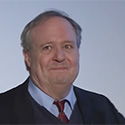
UW Department of Civil & Environmental Engineering
February 16, 2017
Lecture Synopsis and Biography
2016
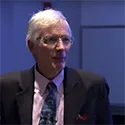
Professor John Stanton
UW Department of Civil & Environmental Engineering
Bridges- A Tale of Scale
February 11, 2016
Lecture synopsis and biography
Related video
At the virtual fall forum of the Structural Engineers Foundation of Washington in November 2020, professor John Stanton shared his vast knowledge of bridges and "revealed engineering mysteries to bring them to life for the technical observer."
Watch video2015
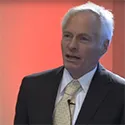
Professor Dennis Lettenmaier
Distinguished Professor of Geography at the University of California, Los Angeles
Some Reflections on the Evolution of Hydrology over the Last 40 Years
February 27, 2015
Lecture synopsis and biography